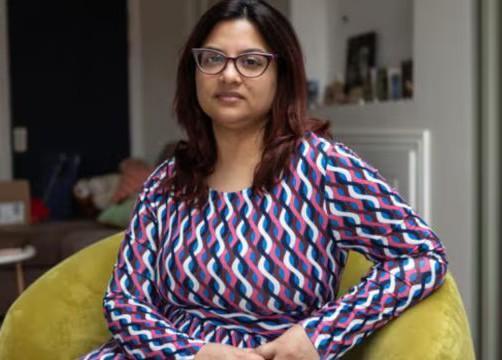
Indian Historian Faces Deportation from UK for Spending Too Many Days in India
In a shocking turn of events, Indian historian Dr. Manikarnika Dutta is facing deportation from the United Kingdom after the Home Office denied her application for indefinite leave to remain (ILR) due to her prolonged stay in India. The 37-year-old historian, who is employed at Oxford University, has been told that she exceeded the allowed number of days abroad, sparking outrage and concerns about the impact on her research and career.
According to the UK’s immigration rules, applicants seeking ILR cannot be abroad for more than 548 days over a 10-year period. Dr. Dutta’s stay in India, which lasted for 691 days, has led the Home Office to reject her application, leaving her facing deportation from the country where she has built a life and career.
Dr. Manikarnika Dutta, a renowned historian specializing in Indian and British colonial history, had returned to her native India in 2019 to conduct research for her book on Indian nationalism and the British colonial era. Her stay was initially intended to last for a few months, but she decided to extend her stay to gather more information and conduct further research.
The Home Office’s decision to deny Dr. Dutta’s ILR application has been met with widespread criticism and support from the academic community. Many have taken to social media to express their outrage and solidarity with the historian, arguing that her research and contributions to the field of history are being unfairly penalized.
“Dr. Dutta’s research is a significant contribution to our understanding of Indian nationalism and British colonialism,” said Dr. David Gilmour, a historian at Oxford University. “Her deportation would be a massive loss for the academic community, and it would be a travesty to send her back to India without considering the impact on her research and career.”
Dr. Dutta’s colleagues at Oxford University have also spoken out in support of her, highlighting the importance of her research and the potential consequences of her deportation. “Dr. Dutta is an outstanding historian who has made significant contributions to our understanding of Indian and British colonial history,” said Dr. Stuart Carroll, a historian at Oxford University. “Her deportation would be a terrible blow to the academic community, and it would be a loss for the world of history.”
Dr. Dutta’s case has also raised questions about the Home Office’s immigration rules and their impact on international students and researchers. Many students and researchers from India and other countries face similar challenges when seeking to extend their stay in the UK, and Dr. Dutta’s case highlights the need for more flexible and nuanced immigration policies.
The UK’s immigration rules are designed to ensure that foreign nationals do not overstay their welcome and take up residence in the country without permission. However, critics argue that the rules are overly restrictive and fail to take into account the complexities of modern research and academia.
Dr. Dutta’s case is not the first time that the Home Office’s immigration rules have come under scrutiny. In recent years, there have been several high-profile cases of foreign nationals being denied ILR or facing deportation due to technicalities in the immigration rules.
In 2020, the UK’s Supreme Court ruled that the Home Office’s immigration rules were “unfair and disproportionate” in the case of a Nigerian student who was denied ILR due to a minor error in his application. The ruling highlighted the need for more flexible and nuanced immigration policies, and Dr. Dutta’s case raises similar concerns.
As Dr. Dutta faces the possibility of deportation, her colleagues and supporters are calling for the Home Office to reconsider its decision and allow her to remain in the UK. Dr. Dutta’s research is too important to be sacrificed due to technicalities in the immigration rules, and her deportation would be a loss for the academic community and the world of history.
In conclusion, Dr. Manikarnika Dutta’s case highlights the need for more flexible and nuanced immigration policies that take into account the complexities of modern research and academia. As the Home Office reviews its decision and considers Dr. Dutta’s appeal, it is imperative that the academic community and the public come together to support this outstanding historian and advocate for a more inclusive and welcoming immigration system.




